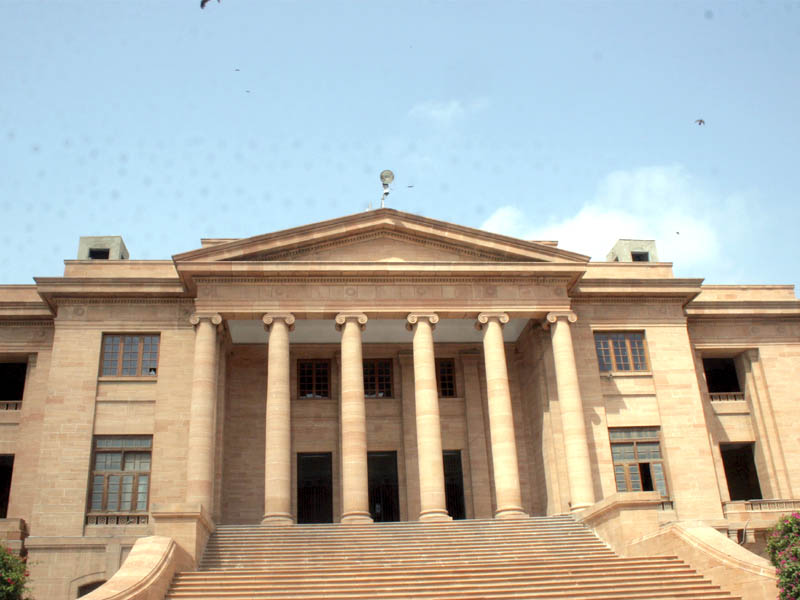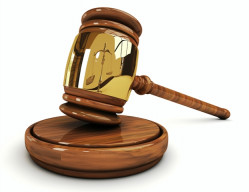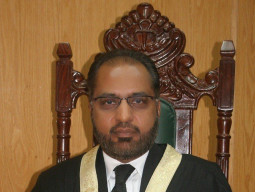
The Supreme Judicial Council (SJC) will take up another presidential reference filed against another superior court judge today (Wednesday).
The PTI led federal government on May 23, 2019 filed two presidential references and the SJC – the only constitutional forum that can hold a superior court judge accountable – had issued show-cause notices to both the judges –Supreme Court judge Qazi Faez Isa and Sindh High Court’s (SHC) Justice KK Agha.
Justice Isa had challenged the presidential reference and the SJC proceedings in the apex court but Justice Agha had decided to face the SJC proceeding. However, the Sindh Bar Council (SBC) in its petition against Isa reference had also requested the court to quash the reference against Justice Agha.
A ten-judge SC bench on June 19, 2020 quashed the reference against Justice Isa while also referring the matter of his family members’ foreign properties to the Federal Board of Revenue (FBR). However, the SC short order issued on June 19, 2020 was silent about the fate of Agha reference.
A number of petitioners including Justice Isa later filed review petitions against the June 19 order and the Supreme Court – by a majority of 6 to 4 – overturned the order on Monday. Sources said the SJC has now issued notice to the Attorney General for Pakistan (AGP) for legal assistance in the SHC judge case.
The sources revealed to The Express Tribune that AGP Khalid Javed Khan would not appear before the SJC and Additional Attorney General Amir Rehman is expected to give legal assistance to the SJC.
The council is expected to consider whether the judges’ code of conduct apply to tax law violations committed during their tenure.
According to an expert, the federal government used the same logic/route in preparing the presidential references. “One of them has already been quashed by the Supreme Court on the basis of legal defects. If one reference is quashed then how could the other one survive?” he added.
Chief Justice of Pakistan Gulzar Ahmed is the chairman of the five-member SJC.
The Supreme Court’s two senior most judges – Justice Mushir Alam and Justice Umar Ata Bandial – as well as two senior most high court chief justices – SHC Chief Justice Ahmed Ali A Sheikh and Islamabad High Court Chief Justice Athar Minallah – are part of the council.
The reference
The federal government in its presidential reference had alleged that although the SHC judge had declared his foreign properties in 2018 but not disclosed their value.
The government had also accused the SHC judge of concealing his immovable properties in Pakistan prior to the tax year 2015 despite the fact that his annual income was over Rs1 million.
With its complaint, the federal government had attached an FBR report which said Justice Agha jointly purchased a property, “No 17 Calvert Close Belvedere Kent” in the United Kingdom on November 24, 2005 but did not declare it in his wealth statement until the tax year 2018.
Even then, the property was declared at zero value.
The report said the SHC judge had not filed his tax declarations between 2005 and 2014. He filed his declarations for the tax years 2015, 2016 and 2017, but did not disclose his property in Kent.
“These properties are not accounted for in his wealth reconciliation statement for the tax year 2018 and before,” read the reference. It also stated that the value or cost of acquisition of the UK properties had not been stated intentionally in violation of the law.
“The sole purpose of showing these properties at zero value for the year 2018 appears to be to evade the duty to reconcile his wealth, which the learned judge could not do so if he had assigned values to the cost or the present market prices of such properties.
“There is thus clear-cut concealment and violation of section 116 of the 2001 Ordinance, begging the application of penal provisions of law.” It said Justice Agha had violated Article II of the Code of Conduct of Judges according to which judges should be blameless.
The sources said the SHC judge purchased the properties before taking oath as a judge.

1731570357-0/elon-musk-(1)1731570357-0-405x300.webp)
-(1)1717678110-0/Kendrick-(1)-(1)1717678110-0-165x106.webp)




1732428532-0/BeFunk_§_]__-(43)1732428532-0.jpg)













COMMENTS
Comments are moderated and generally will be posted if they are on-topic and not abusive.
For more information, please see our Comments FAQ